‘Deep systemic racism’: will Minneapolis’s police department ever change?
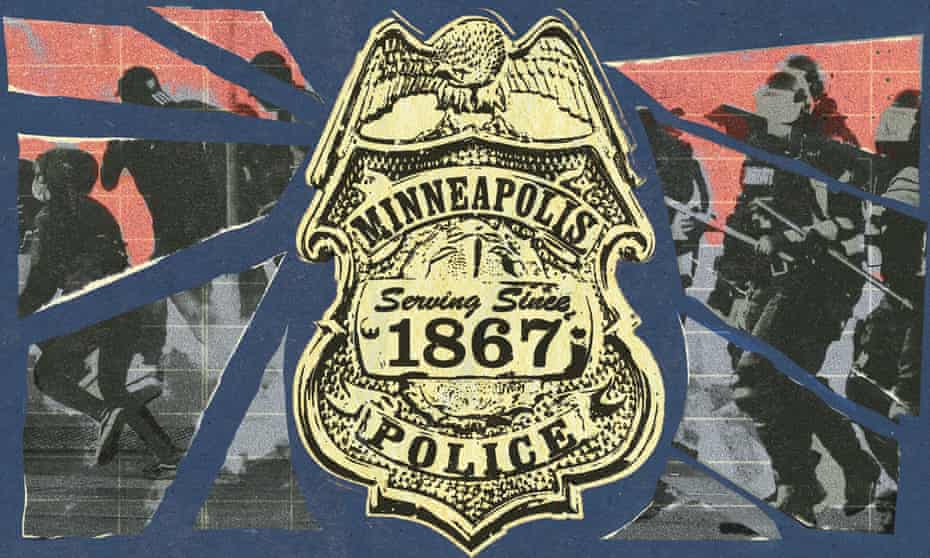
“The department has seen decades of reform efforts, but activists say racism and violence are too ingrained to eliminate
Last modified on Sun 25 Apr 2021 05.03 EDT
As Derek Chauvin crushed George Floyd’s neck under his knee, slowly killing him, a police officer who had just joined the force repeatedly asked Chauvin if they should adjust Floyd’s position. Chauvin, a 19-year-veteran of the department, refused.
That precise interaction – an experienced officer training younger officers to act violently – was not a one-time failure, but a “systemic” problem within the Minneapolis police department, according to RT Rybak, who served as Minneapolis mayor for 12 years.
“Since 1980, every mayor, including me, has had a reform agenda for the Minneapolis police,” Rybak said. “None of us has made anywhere the change that is necessary.”
The day after Chauvin was convicted of second-degree murder, the US justice department announced an investigation into whether Floyd’s murder was part of a pattern of discriminatory and illegal behavior by the Minneapolis police department.
This was far from the first time the justice department has tried to intervene in Minneapolis police violence. For decades, local, state and federal officials have attempted to train Minneapolis police officers not to shoot or harm people unnecessarily and to have more positive interactions with Black, Indigenous, and Asian residents. Minneapolis police officers have been given numerous community relations, trust-building, and implicit bias trainings.
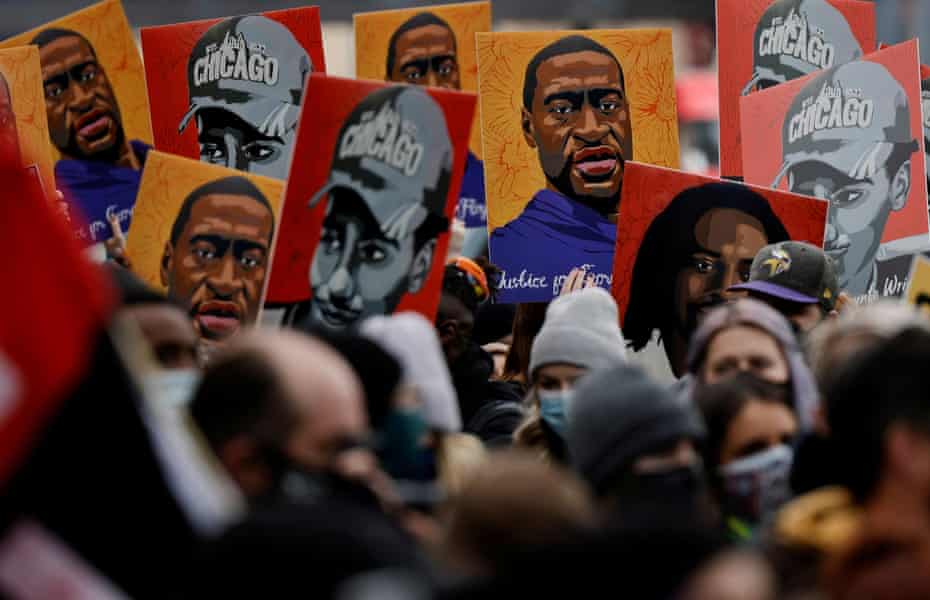
But these formal trainings had been undermined by the lessons officers have taught each other on the street, the reactions of senior officers to anti-racism initiatives, and the success of the local police union in shielding officers from legal consequences, no matter how heinous their behavior, Rybak said.
None of that is likely to change easily.
“I think it’s difficult to come to any other conclusion than: there’s deep systemic racism within the department,”said Rybak, who was mayor of Minneapolis from 2002 to 2014. “That doesn’t mean that every officer is racist, but it does mean that the culture is.”
In the wake of Floyd’s death last year, the then head of the Minneapolis police union called Floyd a “violent criminal” and labeled the people protesting against his murder terrorists. After Chauvin was convicted of murder, the union released a statement accepting the jury’s decision, expressing “deep remorse” for the “pain” the community feels but also criticizing what it called the “political pandering” and “race-baiting” of elected officials.
The need for sweeping police reform is now a centrist position in Minneapolis. The majority of the city council last year pledged to “dismantle” and “abolish”the police department. The effort collided with political and bureaucratic barriersbut is now moving forward through a new attempt to put the future of the department to voters.
The current police chief, Medaria Arradondo, said in a statement that he “welcomes this investigation” and that he believed the justice department would provide “additional support” to implement “changes he would like to see” in the department.
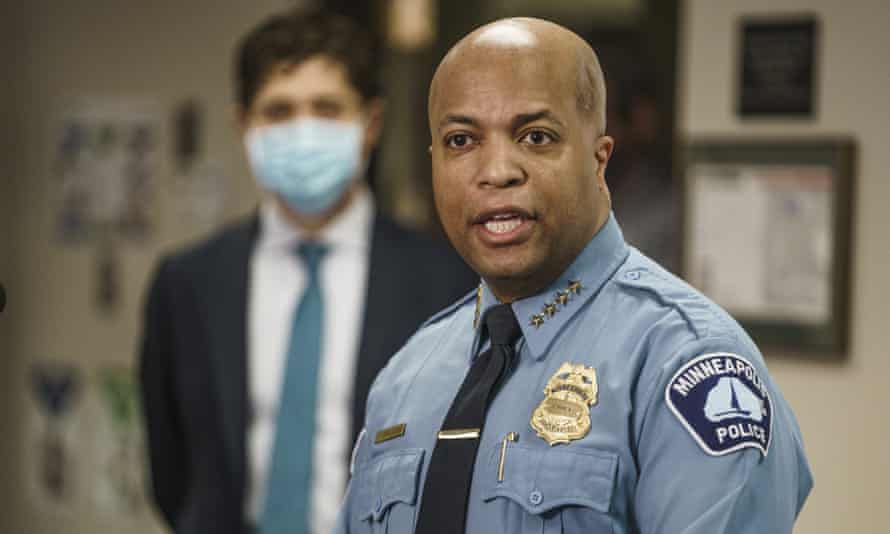
Arrradondo himself was among a group of five Black officers who sued the department over racial discrimination in 2007, a lawsuit that was settled for a combined $740,000.
Some local residents said they were hopeful a federal investigation could bring improvements, while others, including longtime activists against police violence, argued that the problem with police killings was bigger than the Minneapolis police department, and that federal scrutiny was needed across the entire state.
In the past twenty years, 208 people have died in Minnesota after “a physical confrontation with law enforcement”, a database compiled by the Minneapolis Star Tribune calculated. While only 7% of Minnesotans are Black, they accounted for 26% of those deaths.
Some of the most high-profile police killings of Black men in the state were committed by officers in police departments in the Minneapolis suburbs, not in the city itself, including the killing of 32-year-old Philando Castile in 2016 and 20-year-old Daunte Wright earlier this month.
Other local activists said they saw the justice department investigation as mere political theater from the Biden administration and said they believed the police department was unreformable.
“The Minneapolis police department has served as the poster child for reform. If you can think of a reform, it’s been tried in Minneapolis,” said Miski Noor, one of the co-founders of Black Visions, a local organization that advocates for abolishing the police.
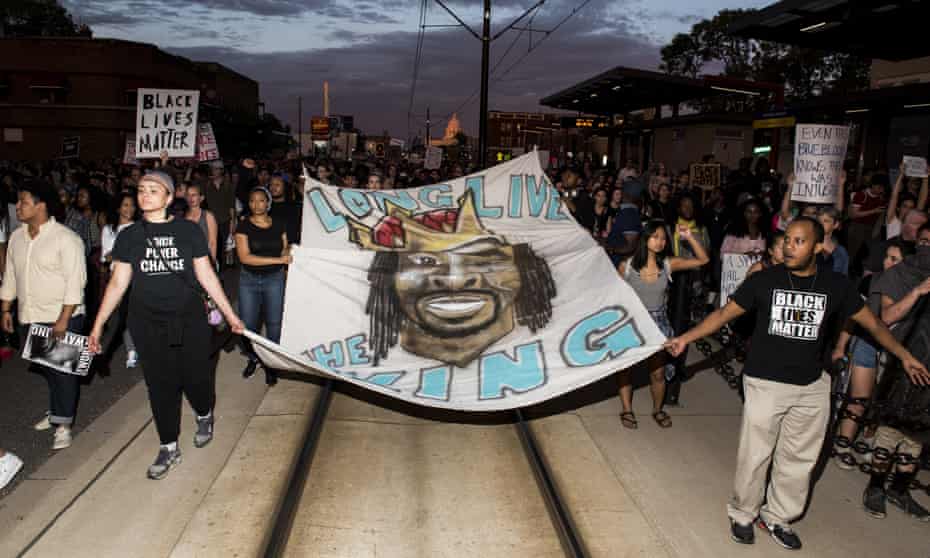
“Currently, we have a Black police chief. Before that, we had an Indigenous woman who was queer as a police chief. They’ve tried all of the ‘identity’ pieces … They’ve had all of the implicit bias training possible, and still they continue to murder Black people indiscriminately.”
The justice department investigation “will spend millions of taxpayers dollars to tell us what we already know”, Noor said, calling it “a symbolic gesture that will do nothing to protect black life”.
‘Everyone screams change’
As part of the justice department’s new investigation, federal officials will once again scrutinize the department’s use of force, including against protesters and people dealing with mental illness; its process for holding officers accountable for misbehavior; and its training policies, among other issues.
In 2002, after a police officer shot and injured a 11-year-old Black child during an attempted drug raid in north Minneapolis, the police department entered into a “mediation process” with the justice department, agreeing to be “more aware of race and mental health issues” and to work on use of force and department diversity, according to news reports. The agreement expired in 2008.
In 2014, Minneapolis was one of six cities chosen for an Obama administration justice department program that aimed to rebuild trust between communities of color and the police, which included official reforms in the department’s use of force policies and “24 hours of procedural justice and implicit bias training” for every officer in the department.
When it came to Minneapolis, the protests after Floyd’s murder clearly showed that training effort “wasn’t enough”, one of the researchers who evaluated that justice department program wrote last year.
High-profile incidents of Minneapolis police violence go back decades, including a 1989 incident in which the police department set fire to the home of of an elderly Black couple, who died of smoke inhalation; a 1993 incident in which two Native American men were stuffed into the trunk of a police car; and a 2015 incident in which a police officer was caught on video threatening to break a Somali teenager’s legs.
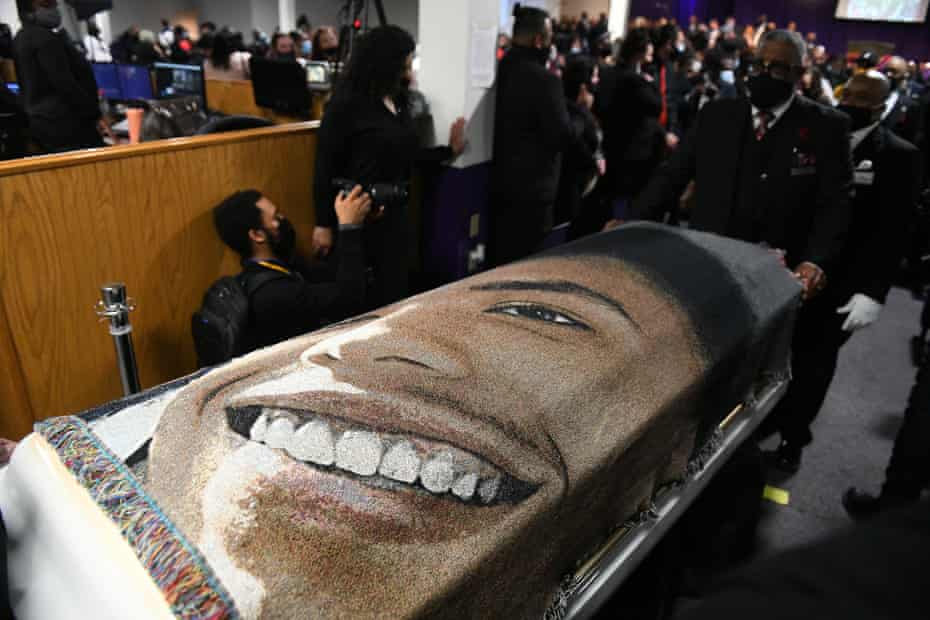
The current Minneapolis mayor, Jacob Frey, ordered the Minneapolis police department to end undercover low-level marijuana stings after the Hennepin county public defender’s office revealed racial targeting. Between 24 January and 24 May 2018, 46 of 47 people arrested in stings were Black.
In 2020, 55% of all youth imprisoned in Minnesota were Black – double the white youth incarceration rate. Of the total youth imprisoned across the state, almost 50% were from the county where Minneapolis is based.
“I’m not the judge and I’m not the jury, but everyone screams change, and change starts with us. We need to take that step forward to make that change,” an early-career Black officer from the Minneapolis area told the Guardian. “I want to be that change.”
The officer, who asked for anonymity, added that the community longed for more Black officers to be in positions of power: “We need you, climb the ladder,” the officer has been told by Black residents.
While a justice department investigation might be productive, police officers could also use some benefit of the doubt, the officer argued.
“All cops are not bad,” the officer said. “Just give people a chance.”
Sixteen-year-old Rogen Abdalla, who organized a student demonstration against police killings at the state capitol two days before the Chauvin verdict, said she is hopeful about federal intervention, but does not expect change will come quickly.
“If the investigation goes how I hope it goes, I think it’ll be a small step towards a better future, if not for me then for my children or grandchildren,” the teenager told the Guardian.“
No comments:
Post a Comment